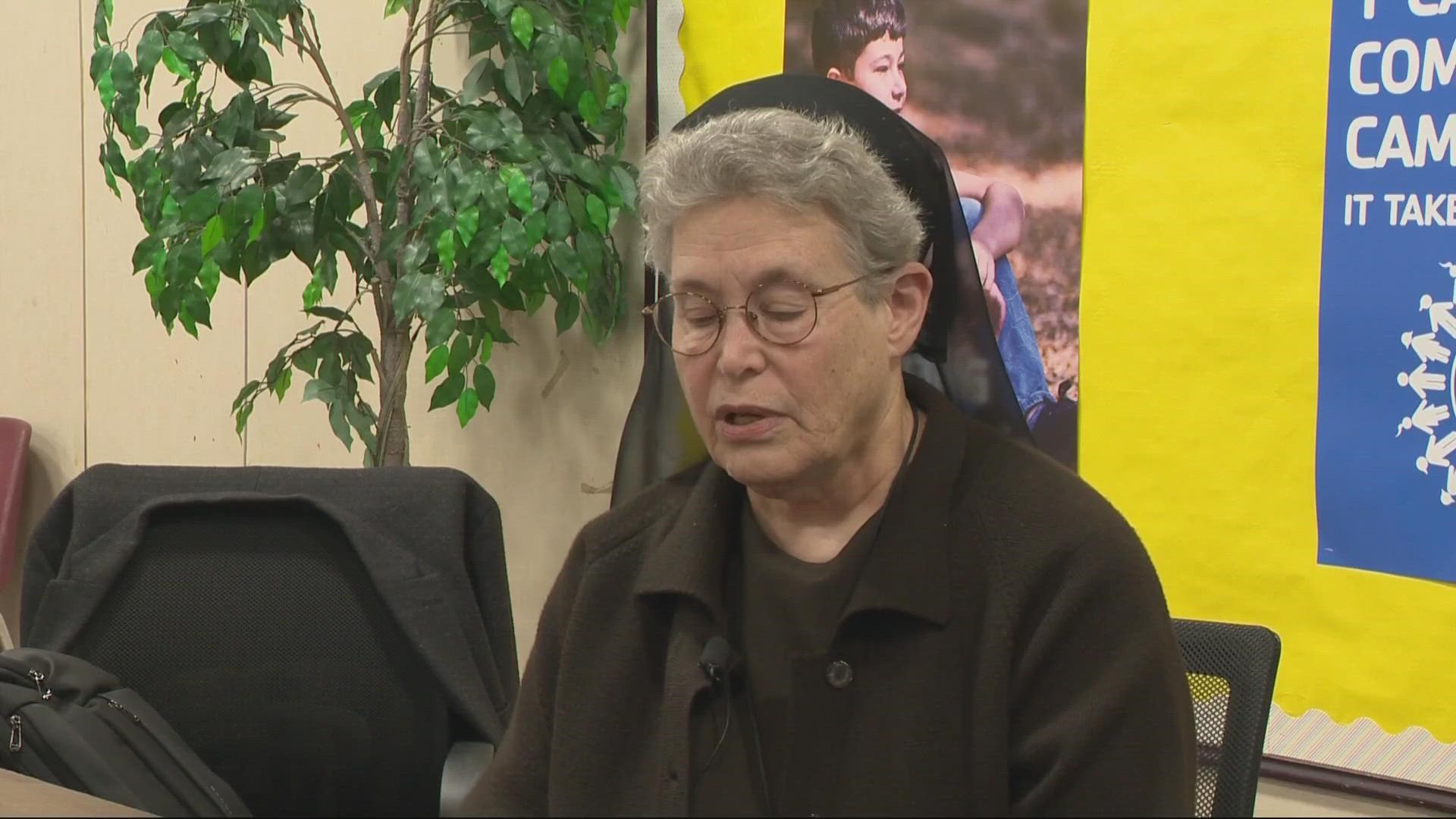PORTLAND, Ore. — Inside a Southeast Portland YMCA, religious groups turn a gymnasium into a weekly meeting space where they discuss how they can tackle one of the city’s biggest challenges: homelessness.
"We decided to immediately pivot to the homelessness crisis," said Bob Horenstein, the head of the group called United in Spirit, a coalition of cultural and religious organizations. Horenstein is also part of the Jewish Federation of Greater Portland. He helped start United in Spirit about two and a half years ago.
"We felt that we had something unique to bring to the table that wasn't already there," he said of the response to the homeless crisis. "I'm talking about compassion not just for the people suffering who are living on the streets, but also for the residents, the businesses, the workers who are also suffering because of this moral crisis."
Sister Veronica Schueler sits next to him, another member of the group. She is the Portland Archdiocese chancellor and, with others, has spent days cleaning up graffiti and trash, but wants to do more. The group has even met with local government, asking how they can use their congregations of hundreds of people to help. They said they aren't getting any answers.
"I feel sad. I feel sad that people are living like that. I feel sad that there doesn’t seem to be a coordinated system for helping them," Sister Schueler said.
Other faith-based communities like Parkrose Community United Church of Christ in Northeast have facilitated a micro-village on their property to try and get people off the streets and into tiny homes. They're ran by We Shine, a local nonprofit, that's low-barrier and houses about 12 people. It has received its fair share of backlash from the community, further proving how complicated it is to find a solution to this crisis.
"Everyone seems to be working so individually. There’s not the kind of coordination that would be necessary to advance change," said Emmett Wheatfall, a Portland pastor.
"During some of the sweeps and cleanups they're offered services, but we don’t know what happens after that," added Sister Schueler.
Last week, the city’s Street Services Coordination Center received 1,060 campsite reports and 45 camps were removed. The report shows 14 people expressed interest in a shelter referral. Eight accepted and in the end, six homeless people actually spent the night in a shelter.
Sister Schueler fears not everyone is being offered help who needs it. Like Joshua, a homeless man in Old Town who suffers from mental health issues.
"I’ve been homeless for seven years. It’s not because of what I’ve wanted, it because of what’s happened to me," he said.
KGW asked him if in his seven years experiencing homelessness has anyone ever offered him help and followed up with him consistently.
"No. No. I’ve never received anything like that," he said.
He added if he did receive that sort of help it would "change everything."
A city of Portland spokesperson said in a statement:
"All people that the Street Services Coordination Center make contact with are offered an immediately-available shelter bed, a ride to that shelter with their belongings, complimentary storage for additional belongings and other services. Resource information is also listed on all posting materials for campsite removals. Our outreach teams find that people decline shelter offers for various reasons. Our outreach teams also tell us that while many Portlanders may decline an offer for a congregate shelter, they may accept an offer for an outdoor shelter like the ones in development by Mayor Wheeler. Currently there are hundreds of unsanctioned camps spread out across virtually every neighborhood of our city, over a massive 146 square mile area. Due to the dispersed nature of the homeless population, there’s no way to provide the kind of consistent case management or follow-up required to successfully connect people to the services or shelter they need. This is the driving force for developing the Mayor’s Temporary Alternative Shelter Sites. We need places for unsheltered Portlanders to stay where they are provided safe shelter, sanitary services, mental health, substance abuse recovery services, and access to other services while they wait for long-term housing."
The faith-based leaders KGW talked with want to get involved. They even said they would like to go out and talk with the people on the streets but don't feel safe or qualified to do so. They plan to keep meeting weekly to come up with how they can fit into a solution to this crisis while continuing to hold city officials accountable.

